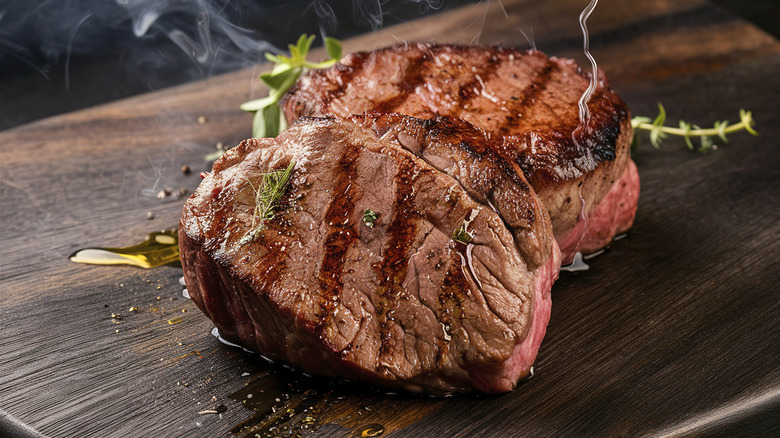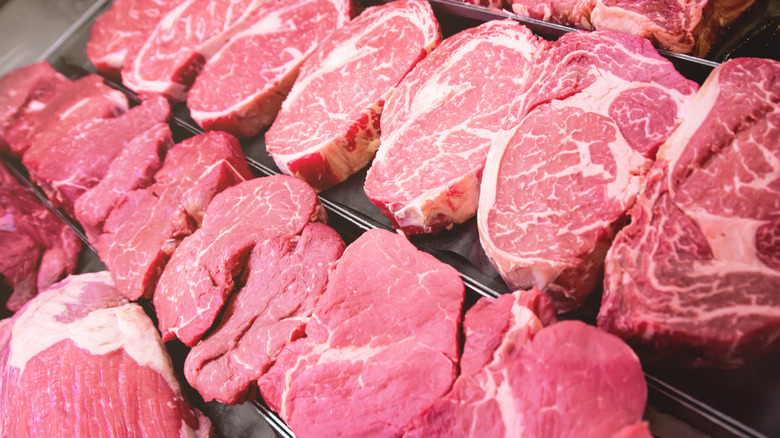Is Conventional Beef Actually Riskier To Consume Than Grass-Fed?
At a time when bird flu wreaks havoc on egg supplies and salmonella recalls are terribly consistent, knowing the best food safety tips can be crucial, especially regarding beef. Fair or not, conventional "factory-farmed" meats have a reputation for not always being as clean as we would like our food to be. In the search for safer food, some studies have shown that conventionally raised beef contains higher levels of bacteria than grass-fed. However, these studies are not always comprehensive, so we decided to reach out to an expert who cares about the quality of his meat: Pat LaFrieda, the renowned fourth-generation butcher and CEO of Pat LaFrieda Meat Purveyors. When asked about conventional beef's extra chance of foodborne illness, LaFrieda offers a surprising answer.
"No, that's a myth," the butcher explains. "There's no real difference in food safety risk between conventional and grass-fed beef." In fact, LaFrieda points out that there can actually be greater risk with grass-fed beef as BSE (Bovine Spongiform Encephalopathy or "Mad Cow Disease") "has a greater chance of being found in grass-fed beef due to the older age of the cattle." Additionally, LaFrieda notes that "BSE cannot be killed during the cooking process."
Grass-fed beef isn't any safer than conventional beef
The fact that BSE can't be killed by cooking is an important distinction because, as LaFrieda says, "For pathogens, what matters is how the meat is handled and cooked." The United States Department of Agriculture (USDA) recommends that beef be cooked to 160 degrees Fahrenheit to kill pathogens, but as he admits, "Let's be real—most chefs and butchers prefer medium-rare at 135 degrees Fahrenheit." For LaFrieda, the most important thing is the caution of the people selling and cooking the meats. "If you're buying from a trusted butcher and storing and cooking your beef properly, you're not taking on any more risk eating conventional beef than you are grass-fed," he adds.
In terms of the whole grass-fed beef versus conventional debate, it's LaFrieda's opinion that it's nothing more than hype. "A lot of the hype around grass-fed beef is just that—hype," the butcher notes. "People love a buzzword, but at the end of the day, grain-finished beef is just better." As detailed by the butcher, grain-finished beef is "more tender, more flavorful, and frankly, the preferred choice for most chefs."
Additionally, LaFrieda claims that grain-fed beef can be more sustainable because they grow faster and thus create fewer emissions over their lifetime. So, is grass-fed beef really better? At the end of the day, the butcher recommends that you just follow your taste buds, saying, "If you like the leaner texture of grass-fed, that's fine, but if you want the best eating experience, go for grain-finished. You'll taste the difference."

